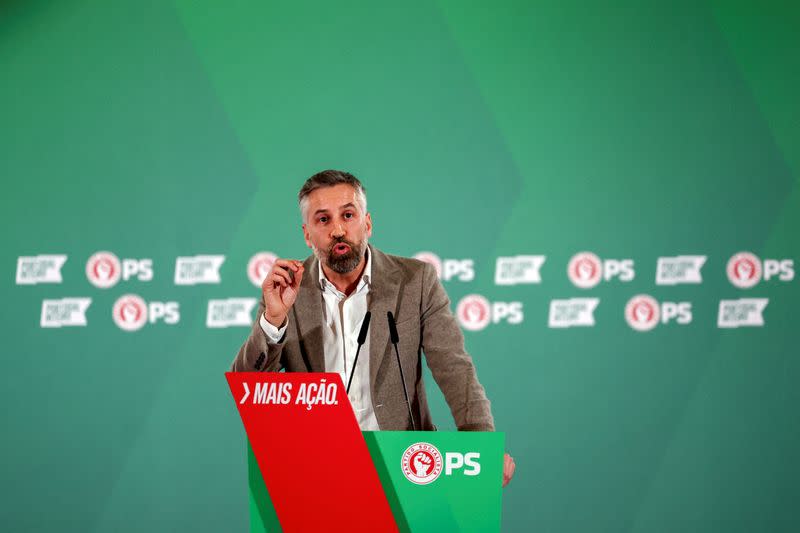Portugal's Socialist leader confident of election win to stop the far right

By Sergio Goncalves and Miguel Pereira
SETUBAL, Portugal (Reuters) - The leader of Portugal's incumbent Socialist Party expects last-minute support from voters eager to thwart the far-right's growing ambitions will help it win Sunday's election despite trailing the centre-right opposition in most opinion polls.
Pedro Nuno Santos, 46, at the helm of the centre-left party for just two months following Socialist Prime Minister Antonio Costa's resignation amid a corruption investigation, spoke to Reuters after a campaign rally in the port city of Setubal attended by hundreds of flag-waving supporters.
"We are very confident, the reactions we have had in the last few days have been extraordinary and we will continue to work until the last day to win, to have a big victory," he said.
Voting Socialist "is the best way to stop the far-right in Portugal and its influence on any future government," he added, referring to the third-placed and fast-rising populist party Chega that hopes to become kingmaker to the centre-right Democratic Alliance (AD), with a potential government role.
Most opinion polls put the AD slightly ahead of the Socialists and short of a working parliamentary majority. With almost 20% of voters still undecided, analysts say that either could get the most votes.
But the combined right, including the far-right Chega, are likely to have the majority of seats in parliament. The AD has so far rejected any type of agreement with Chega.
One of the supporters, 18-year-old first-time voter Manuel, said he would vote for the PS because it has strengthened the welfare state, and "because I believe that it is key to stopping the right from destroying public services and making a coalition with Chega".
Santos said the PS is "in the best position" to maintain "the financial and budgetary stability that was achieved" with the reduction of public debt below 100% of gross domestic product and a budget surplus.
"We have our public accounts balanced and this is an asset that we want to preserve, because it is very important for us to continue moving forward...in salaries, pensions and public services," he said.
He defended a selective policy of incentives in a few sectors with greater potential to transform the economy, while rejecting as "irresponsible" the AD's proposal of across-the-board tax cuts.
(Reporting by Sergio Goncalves and Miguel Pereira; Editing by Andrey Khalip and Ros Russell)

 Yahoo News
Yahoo News 
